Interview: Artistic Director Sean Daniels Talks Diversity, Reflecting Community Values, Upcoming Season at Arizona Theatre Company
Daniels is entering his third year as Artistic Director of the company.
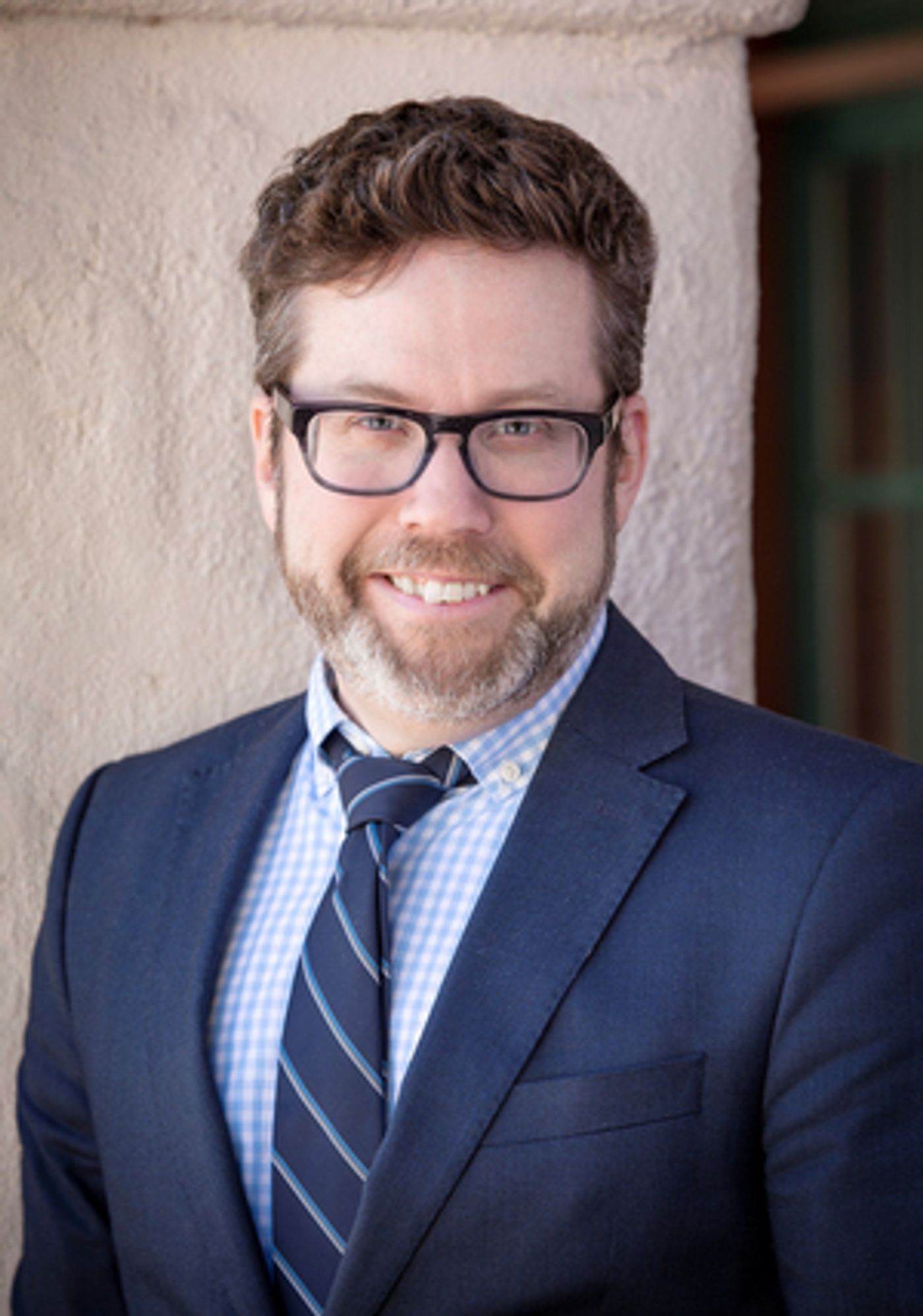
While most of us have grown accustomed to hearing Arizona's "dry heat" in the lexicon of modern satire, non-denizens have yet to consider our monsoons as the great equalizer. Especially nowadays, where record-setting downpours are certain to prolong the debate around climate change. Nonetheless, locals deserve a chance to absorb and celebrate the welcome return of epic thunderstorms. After a long drought, folks are inclined to take the rain as a good sign of better things to come.
There is, after all, a discernible excitement permeating this beautiful and resilient desert community. It's the dormant roar of a city about to resume its familiar grind: students bracing for their return to a physical campus, restaurants ushering in long-lost epicures, and theatre companies raring to showcase a brand-new season.
For some, excitability is curbed with shrewd apprehension, no doubt induced by a protracted season of quarantines and lockdowns. A staggering number of Arizonans have caught and survived the virus, but sadly witnessed so many others lose the battle and leave our midst.
Indeed the last year and a half was fraught with humbling consequences, but not without the serendipity of self-reflection, forcing us to adopt a host of innovative learning strategies at home and in the workplace. Technology, more than ever, became a reassuring companion.
And yet, it stretched the mind to imagine a future without the arts in the public sphere.
Entering his third year as the artistic director of Arizona Theatre Company, Sean Daniels is the first to affirm the significance of the arts -- specifically live theatre -- and its return to public awareness. He admits to having caught Covid-19 over the last year, which not only put his life in perspective but also redirected his artistic energy moving forward. Like the burgeoning tension before a storm's release, he is borderline giddy about launching the season with a slate of new plays and musicals, all designed to liberate our stifled psyches while extolling the virtues of staying alive.
Below is a condensed transcript of our recent conversation about the state of the arts and how the company plans to navigate its immediate future.
BWW: It's been a heck of a year for everyone, including those of us in the arts business. Moving forward, what do you want people to know about Arizona Theatre Company?
Sean Daniels: You know, I think there's never been a more exciting time to be a part of Arizona Theatre Company -- for several reasons. I took over back in May of 2019, so I got through half a season and a pandemic. It's not gone exactly how I thought my first two years would go. But what's been amazing about it is that we have really been able to use this time to put in place all of our programs, and to better the organization in ways that we would never have had the time to do.
So it's a gift in disguise, so to speak.
Yeah. You know, we would never wish it on anybody. I lost friends to Covid - and I had Covid, so I know how serious it is. But when you're an under-resourced arts organization, you get to make a couple of moves a year, and all the work that we've done over the last year and a half -- that would have been probably what I would have done over ten years. So what's amazing right now is that we're coming out of this -- we are in the best financial position we've been in the last ten years. We're coming back as a smaller organization than we were before. We were able to grow strategically. We were able to do a lot of fundraising, and that fundraising we did was not just from a couple of people. We have been able to take the time to connect to all of our donors, to all of our community, and to really articulate our value, what it is we're working on, how we're moving forward, how we want to be a local theatre that the world pays attention to. We started doing monthly salons with people, to be able to talk about, like -- here are the artists we are interested in, here are the playwrights we're interested in. And people responded! I just think, in the past, Arizona Theatre Company has never had the time to really be able to connect with people.
The other cool thing that's happened is right when the pandemic started, we switched to digital [programming] because we said, "Oh my God, we have to stay connected to our audience, our subscribers, and our donors." And we started having real success with it. We got 17,000 people to watch the concert in London; 24,000 people watched the 24-hour plays. Overall, about 300,000 views have been logged on to our digital stuff. So we did some digging into the numbers and what we found is that none of those people are our subscribers or our donors.
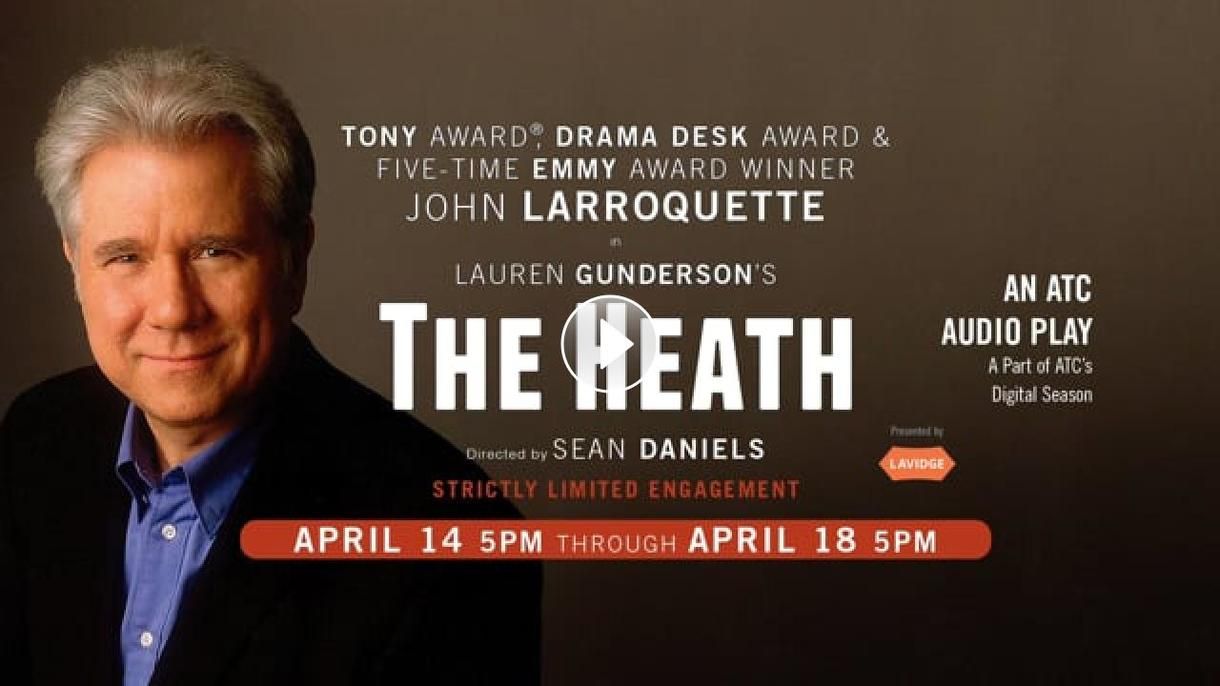
Wow, there's something to chew on. That's good news.
Yeah! When I send my mother a link to watch something, I'm committing myself to a 30-minute text session to help her get it set up, to get it on the TV. And I think for many of our subscribers and donors -- they love us, they're supportive of us, they'll be there when we're back, but they enjoyed coming to the theatre. So actually what we found is that all the success we've had, digitally, has been...a younger, more diverse audience that thought it was not for them, or thought it was expensive. We made a choice early on to not charge for any of our online programming, to try to be as accessible as possible. What's amazing for us is that a "hit show'' -- a hit show is like 10-thousand people that see something in both cities, maybe 20-thousand if it's a real gangbuster musical -- we're doing 17-thousand people over three days, watching something digital.
So now we're talking about expanding your reach to an even younger demographic, like those in schools who aren't your everyday theatregoers.
Even in our education department, we started sharing our musicals with schools for free. On our last show we did, SOMEWHERE OVER THE BORDER, that's 77 schools -- 6,000 kids! That's as much as comes to student matinees for an entire year, coming to watch us over three days, digitally. And you know, before the pandemic, we were like every regional theatre. We were terrible at online marketing, and we were forced to get into it...and that's been the gift of the pandemic.
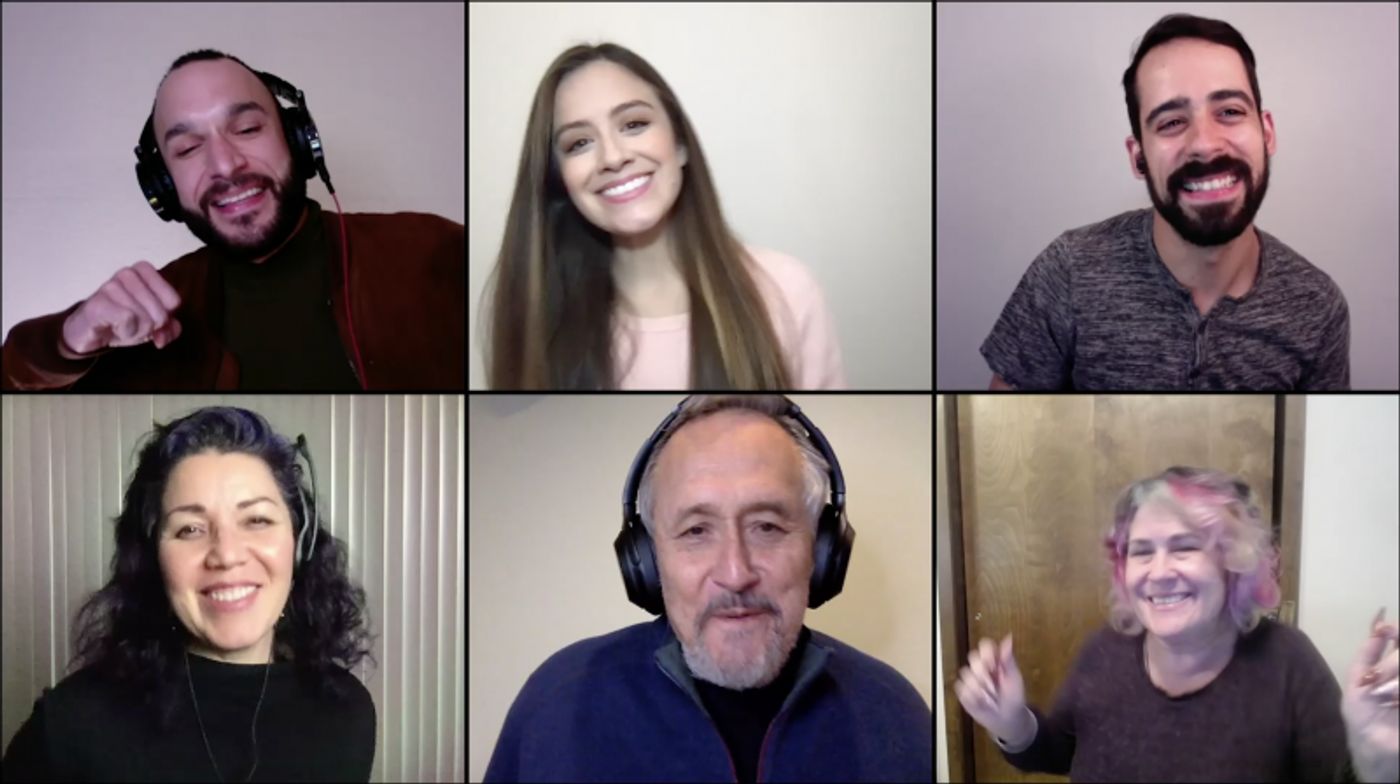
We have this talk show every Friday, "Hang and Focus," that me and Chanel Bragg, our associate, do. We're able to talk directly to our audience every Friday. Anybody that wants to sign on and ask us a question, we're there. And I think that level of transparency is not what Arizona Theatre Company -- or really any regional theatre -- has been known for.
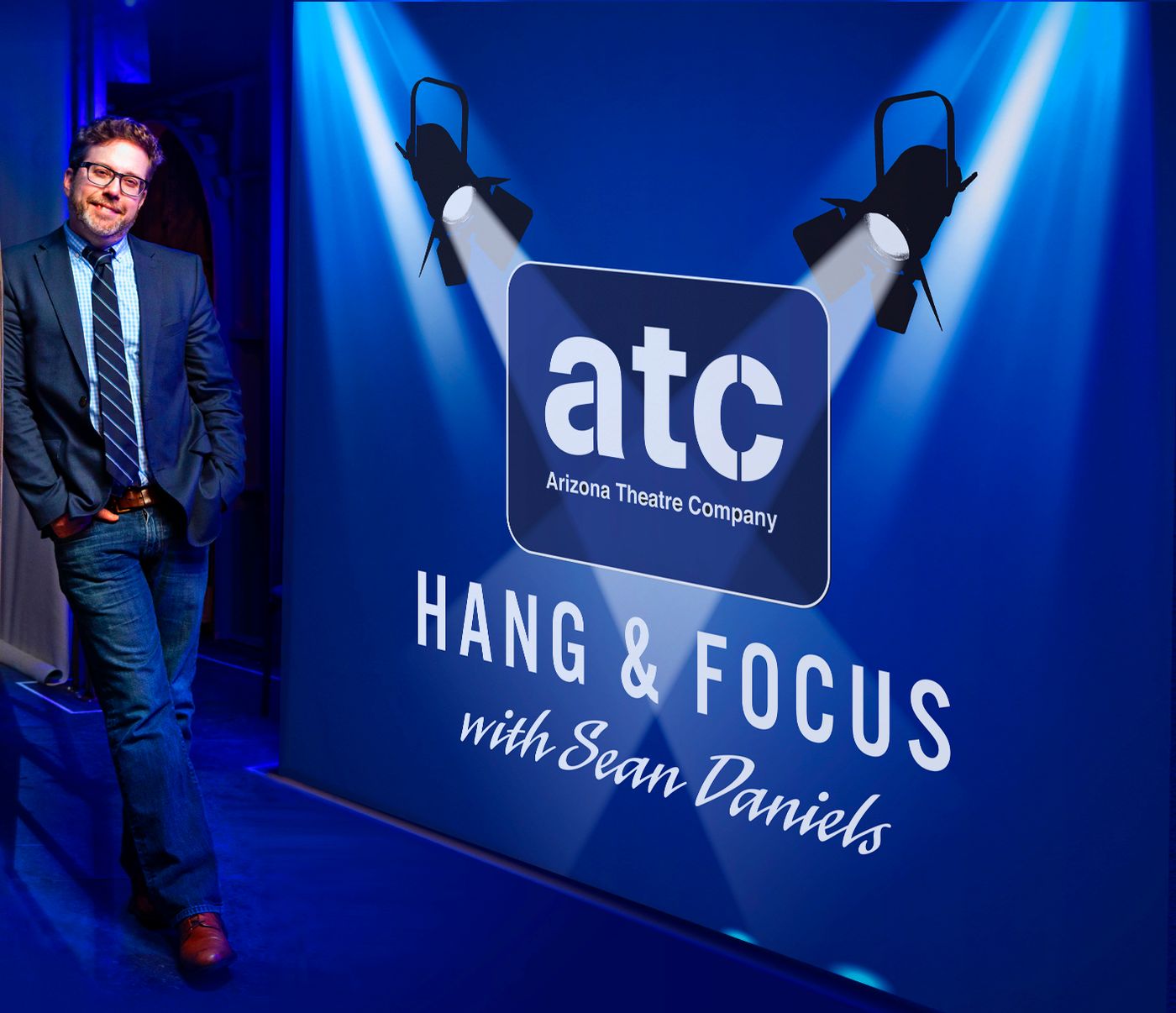
You're echoing the sentiments of educators like myself. As a theatre teacher in the public school, I went into a momentary panic when the pandemic hit. How was I suddenly going to teach this stuff online? In hindsight, I find myself immensely grateful to have learned new ways of connecting with students, albeit from afar.
So let me shift the topic to a more immediate aspect of your job. Your upcoming season looks intriguing. Given what you've been through with the pandemic and all, what sort of considerations went into selecting your lineup?
We always say that we want to be a local theatre that the world pays attention to. And that we are making a commitment to reflecting our community and to creating work that we feel will go on to become part of the canon of the American theatre. We had a lot of shows that we had already announced before the pandemic hit, so we really wanted to stay committed to those artists (and artists were hit harder than we were). And what was nice, as the season came together, was: It's a series of shows about how people learn to love each other again, and how they learn to connect with each other again. I really feel like that's gonna be the big story coming out of this pandemic. It's like this, I get nervous -- I walk into a room full of a hundred people and I have to learn how to be back and connect with people. And I really enjoy it when I do.
So it's three plays and three musicals, but all of them are kind of around a theme of "how do we look for similarities and not differences; how do you connect with people who are different from you but may not be?"
How many of them are you directing? And how do you go about choosing who directs the ones you're not directing?
I'm directing three of them, which is a little by chance, because they were three projects that I had already been committed to, where I had already done the world premiere of. One of the things we're doing is we're also quickly diversifying new artists that we have on our stage. Over our digital season last year, sixty percent of our artists were artists of color. This upcoming season, half of our directors are going to be women...we're always gonna have world-class art that's happening, but at the same time we want to make sure that we really reflect the community that we're in...in terms of age, in terms of socio-economics, in terms of race.
Speaking of reflecting the community, ATC over the years has followed a pattern of casting the biggest acting roles from premier cities like New York City. Proverbial elephant in the room - everyone was from out of town except the occasional bit part reserved for a local actor or two. You spoke of diversifying; what are you doing to change that pattern?
We're having auditions coming up soon, but we have already hired more Arizona artists for the upcoming season than any previous season that any of us are aware of. The proof is only in the pudding, in terms of "as you do it, people come to see it." But there is a great talent pool here. I grew up in Mesa and I moved away, and I wasn't able to get into Arizona Theatre Company. I was like, "Oh my God, I have a local connection, how can I not get there?" So I really want to make sure that you don't have to leave to get a New York address before you can work here. There IS talent here.
AND if we don't have exactly the things we're looking for, how do we build a farm system, through our education program, to be able to offer those types of classes, whether it's in stage management or acting? If we can't find it, we need to build that community.
One of the things that really sticks out for me is the conscious effort to reflect our border issues. The "RomeroFest" was an excellent move to not only honor a local playwright in Elaine Romero, but also to reflect the important issues happening in our immediate environment.
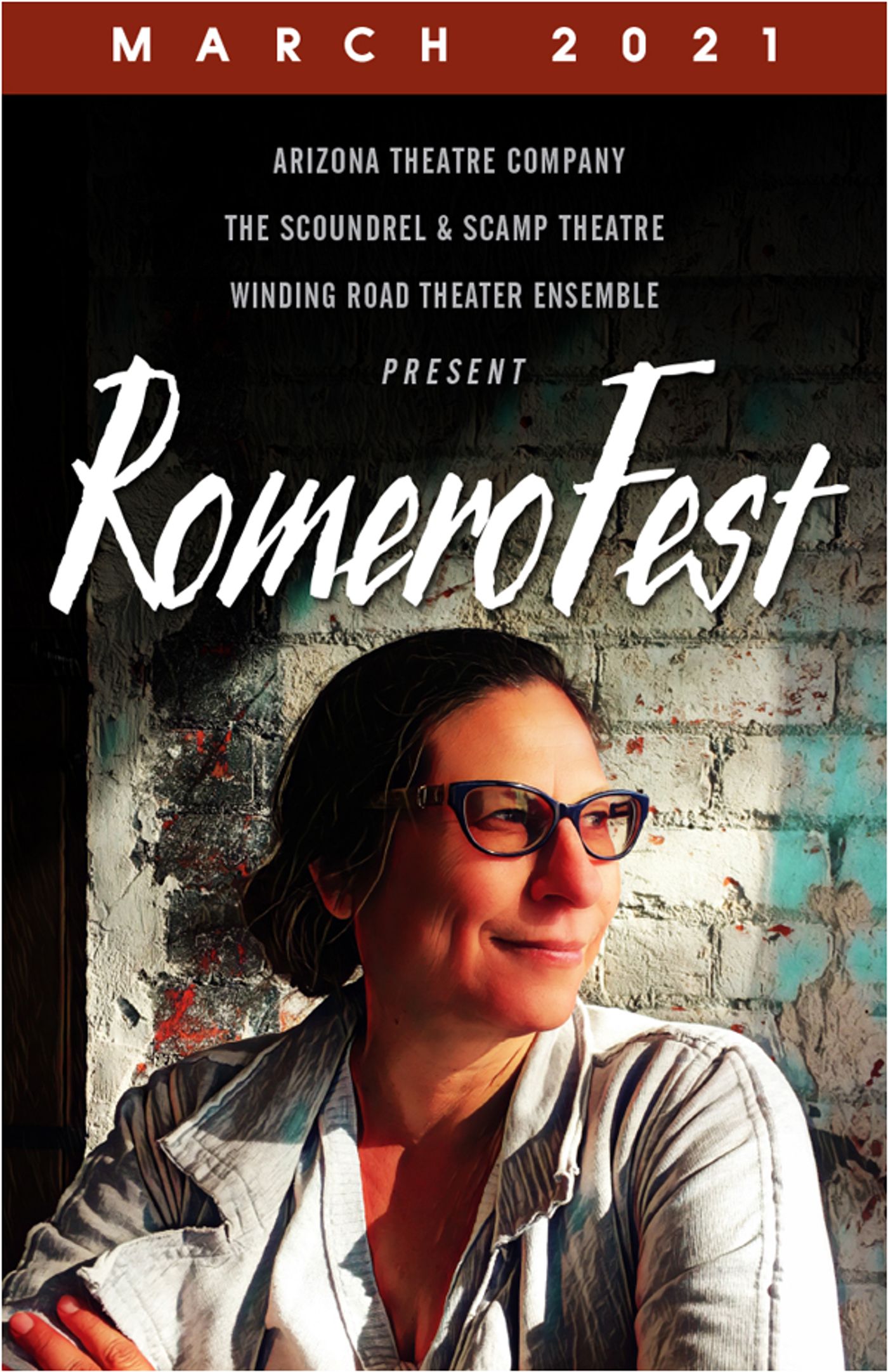
Elaine has been our playwright-in-residence like -- forever, right? And she has never gotten the due that she deserved. And so to be able to do that, in theatres all across the US and in Mexico, to be able to celebrate her...what I love about it, selfishly, is the idea that everyone is talking about Arizona. It's very good for Elaine, it's very good for theatre. But there's no reason that we can not be a local theatre the world pays attention to. That we can't be a central theatrical hub to the country. And I know, there's always a thing in Arizona where people think, "Well, if you're here, you must not be that good. And if you're really good, you'd be in New York or California. And that's just not true. It's a hundred percent not true!
I also appreciate the shift in material, by the way. Warhorse musicals will always have their run, but it's refreshing to see a new repertoire that many of us have never heard of. I commend you for having a big role in creating that.
I appreciate that, because it is a subtle shift.
Well, it's not that subtle to those of us who follow you. We can see it.
I know that you see it. But you know, we have two world premieres in our season, right? Our very first show, MY 80-YEAR-OLD BOYFRIEND, will go to a theatre in Ohio, The Human Race Theatre, and then hopefully Off-Broadway afterwards. Chris Pena's HOW TO MAKE AN AMERICAN SON is gonna go Off-Broadway at the Rattlestick after it's here. And JUSTICE, which is a musical, we have big hopes for...we want people to know that [the] work starts here. And then it goes elsewhere, and our fingerprints are all over it.
I think it's a big move, which makes me wonder how it impacts your longtime subscribers.
We'll see when we come back. But the thing that we always have to be doing is to attract new audiences without displacing old ones. That's always tricky, right? But let's be honest -- we have to take the long view. We have to say, "What choices are we going to make so that the theatre can be here in 30 or 40 years?" There's room for all types of theatre, but if the season is like soup after soup after soup of just something for an audience that is already coming, that's not being strategic about how we sustain ourselves for the next generation and the generation after that.
You just answered my next and final question, which has to do with the big picture and the types of programming we can look forward to.
This is not [necessarily] considered good programming, but it is good programming this year. Our first three shows, coming back, are all very charming, just laugh-out-loud good nights in the theatre. I always believe that theatre is a place for society to kind of wrestle with feelings and come up with new ideas about how we can heal and change. It's also sometimes just a great night out. There's nothing wrong with going and laughing -- and I think coming out of the pandemic, that is what we're gonna want.
When we get to the spring -- NINA SIMONE is an amazing musical, but it does not shy away from the activist that she was. There were issues she was trying to raise, and now she seems decades ahead of her time in terms of Black Lives Matter and things like that. But for the first three shows, let's just get people back, sit down in the theatre, let's laugh with each other, let's applaud, let's have a great time. There's nothing wrong with having a great time at the theatre.
Photo Credit: Arizona Theatre Company
For more info, visit: www.arizonatheatre.org ~~ (520) 884-8210
Videos

